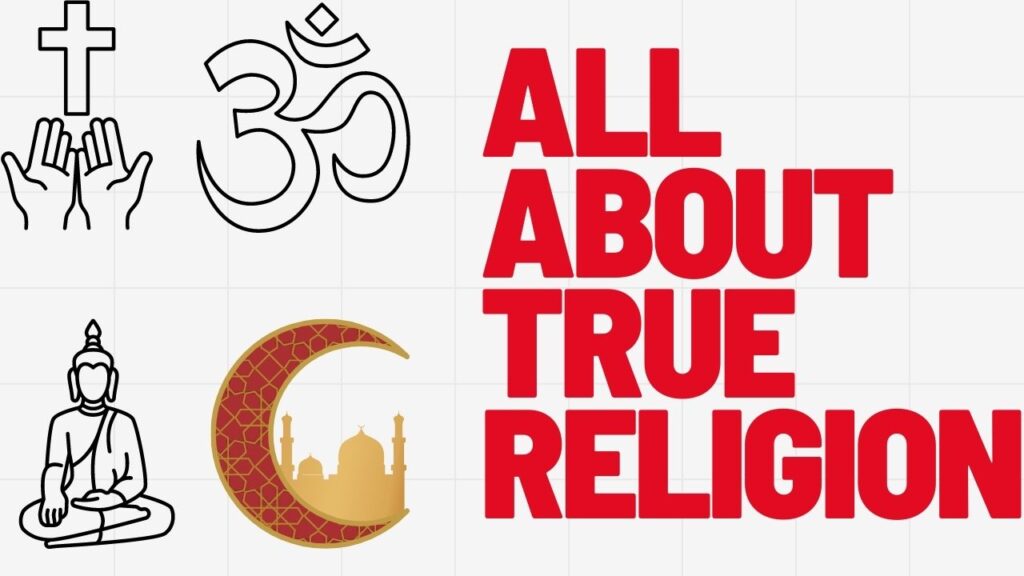
Contents
Which Religion is True ?
Religion’s concept of truth can vary widely and subjectively according to different belief systems and individuals, often being formed by cultural, familial and personal experiences that shape beliefs and practices.
What is the True Religion ?
Religion and spirituality are deeply personal matters for each of us; individuals may find meaning and fulfillment through different religions or philosophical views. Therefore, it’s vitally important that individuals respect one another’s religious views while engaging in open and productive discussions on these subjects.
While exploring various religions or spiritual paths, it’s essential to keep historical context, cultural influences, personal experiences and your individual needs in mind when searching for one that resonates. Only you can decide for yourself which religion or spiritual path resonates best based on personal journey and convictions – no one else should decide for you!
It is on Personal Beliefs which is the true religion.
Where is True Religion Made
Religion is subjective and depends on an individual’s worldview and beliefs. Religions claim they represent truth and divinely inspired them while offering insights into life and spirituality. Over the course of human history, different faiths have arisen and evolved across various parts of the globe.
Christianity first emerged in the Middle East around 2,000 years ago, with Jesus Christ serving as its central figure.
Islam first emerged on the Arabian Peninsula during the 7th century CE with Prophet Muhammad receiving revelations from Allah (God).
Hinduism has deep roots in India’s subcontinent and does not claim a founder.
Buddhism, founded by Siddhartha Gautama (Buddha), originated in ancient India.
Judaism is one of the oldest monotheistic religions and its roots can be found among ancient Hebrews of the Middle East.
Religions and belief systems have emerged in various regions across the globe. Each religion boasts its own history, teachings, rituals, and practices – though defining one as “true” may differ significantly between individuals and cultures. Therefore, discussions about religion should always take place with openness, tolerance, and an appreciation of diversity.
Is Christianity the True Religion ?
Religion is an inherently subjective topic which has long been subjected to debate by theologians, scholars, and individuals from varying faith backgrounds.
People’s beliefs regarding the truth of religion tend to depend on factors like cultural background, family upbringing, personal experiences and spiritual convictions. Different faiths make different claims regarding truth and deity – followers of each faith often believe their religious practices hold validity as stated by them.
At its heart, religion is deeply personal. When discussing it with others, however, it must always be approached with due regard for differing opinions and with an eye toward dialogue and diversity appreciation. Recognizing that religious or spiritual convictions vary depending on personal choice is also paramount in order to reach understanding among everyone involved in discussion about faith or spirituality.
Is Islam the True Religion ?
Religion is an act of faith and belief; individual adherents as well as religious communities often hold varied opinions on this issue.
Muslims believe Islam to be the true religion and believe it to represent Allah (God), through Muhammad as its representative. Muslims follow both the teachings of the Quran which they consider God’s word directly, as well as those from Hadith which record his sayings and actions.
As important, however, is understanding that people from diverse religious backgrounds share similar beliefs about which faith is the true one. Christians profess belief in Jesus Christ’s divinity and accept authority of Scripture while Hindus put stock into teachings found within sacred texts.
Which Religion is True ? Conclusion
Religion can be subjective. What constitutes truth depends on each individual’s life experiences, culture and spiritual convictions. Engaging in respectful dialogue with others to gain an understanding of their beliefs can foster mutual respect and promote greater appreciation of religious diversity.
Related Post – Which Religion is True ? Which Religion is True ?
What Do All Religions Have in Common









